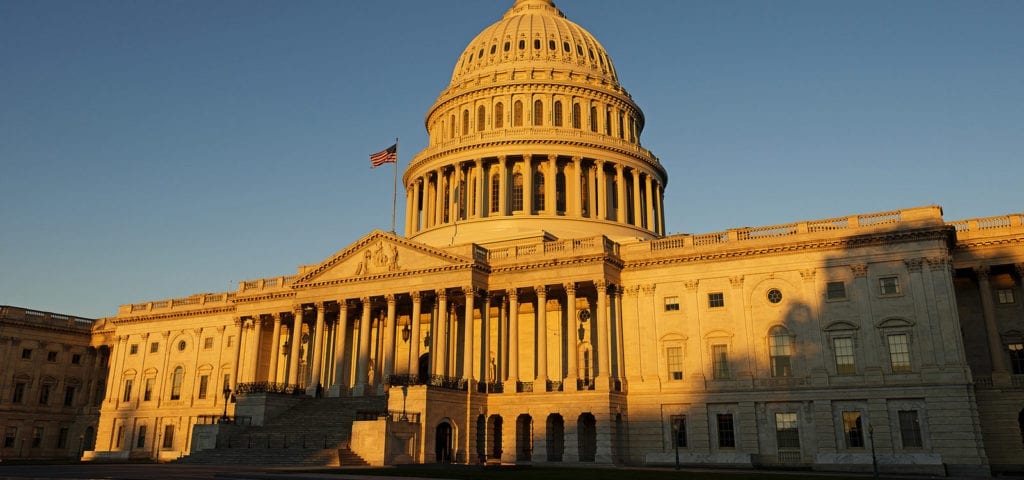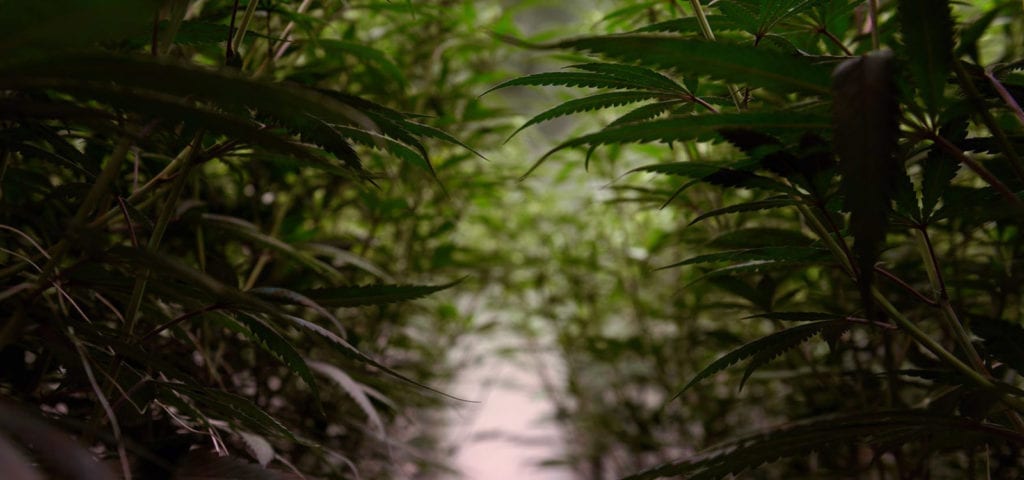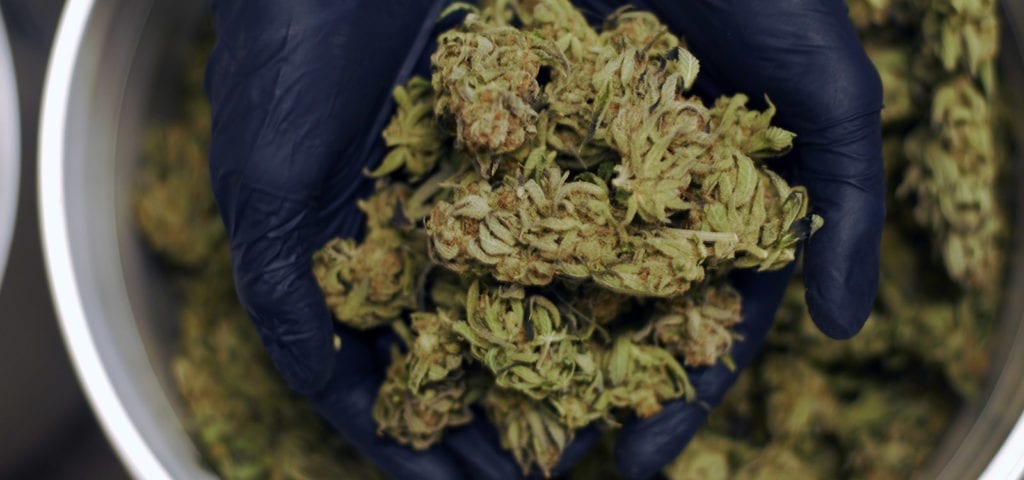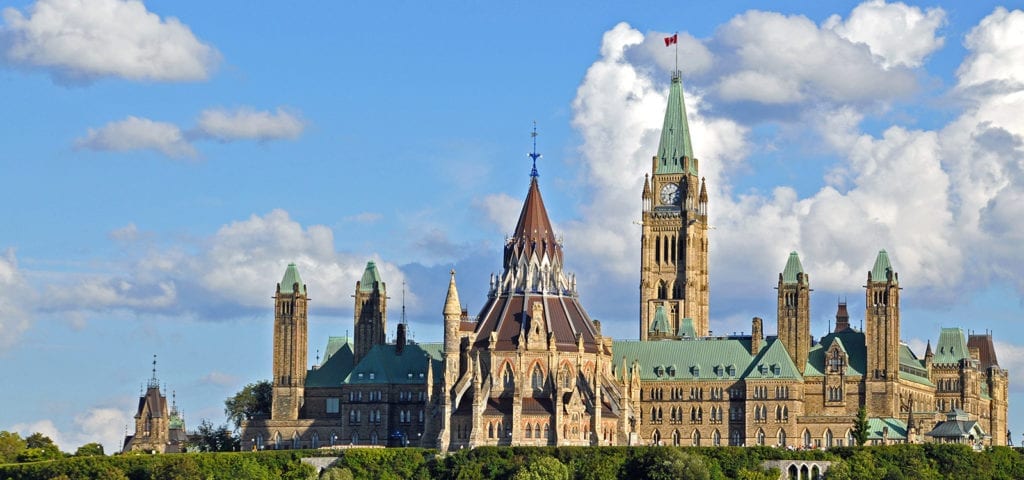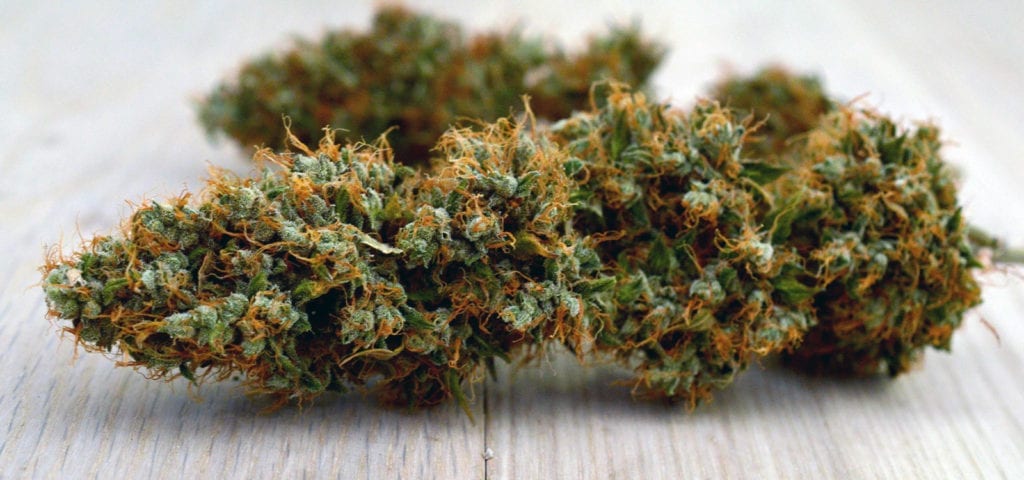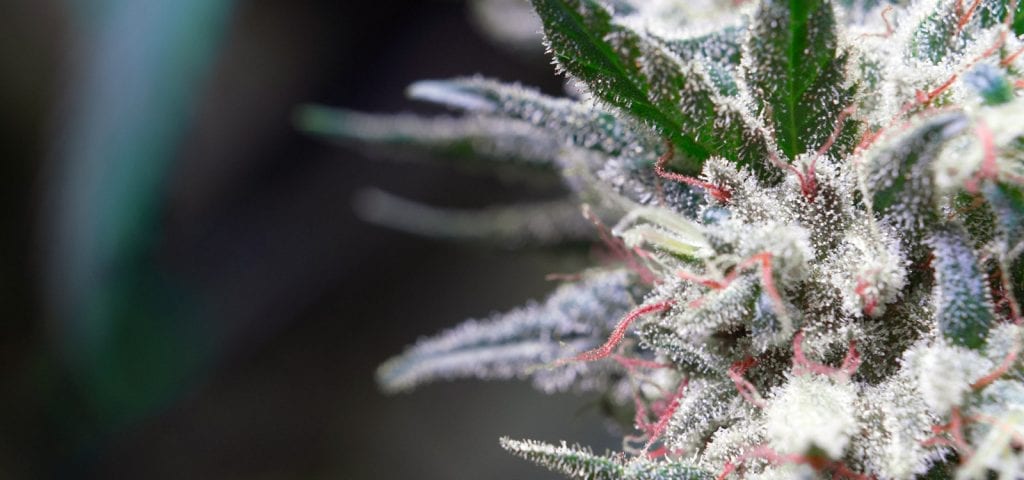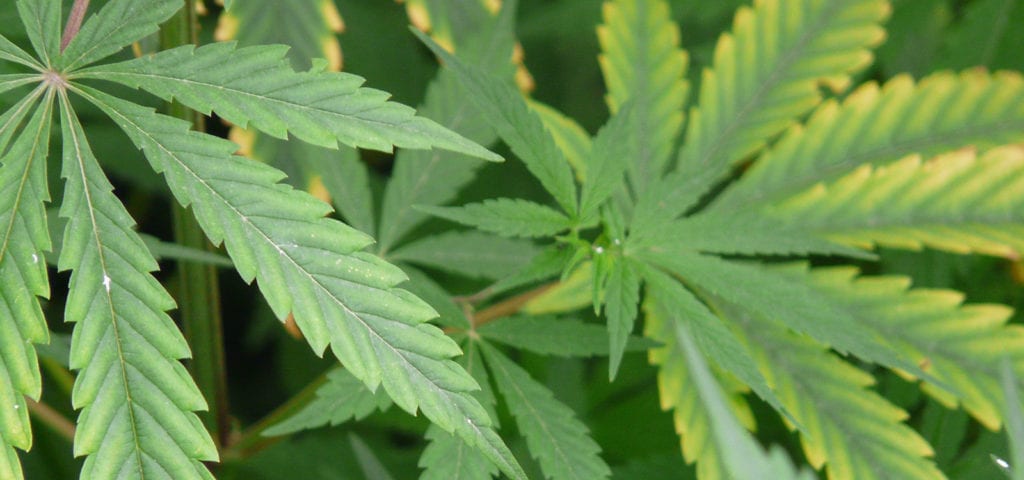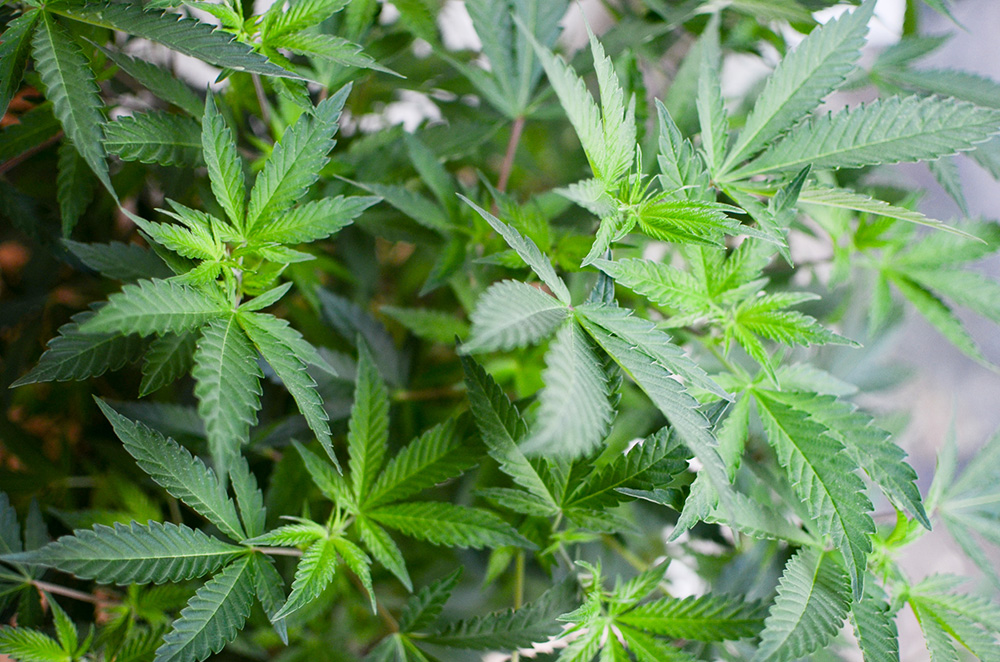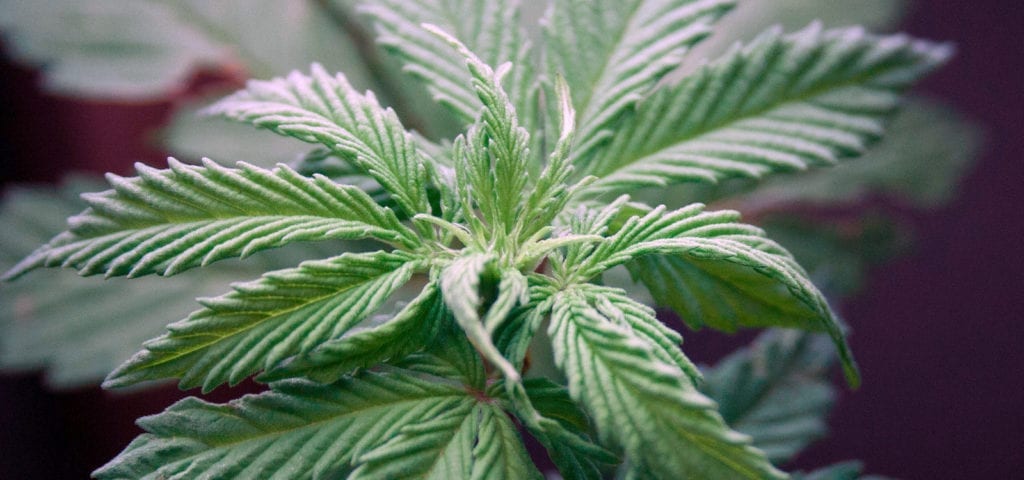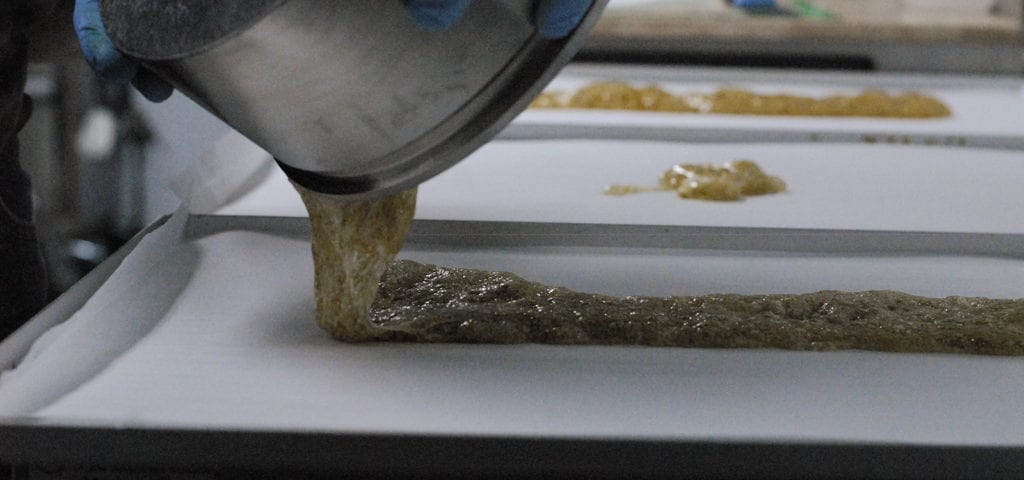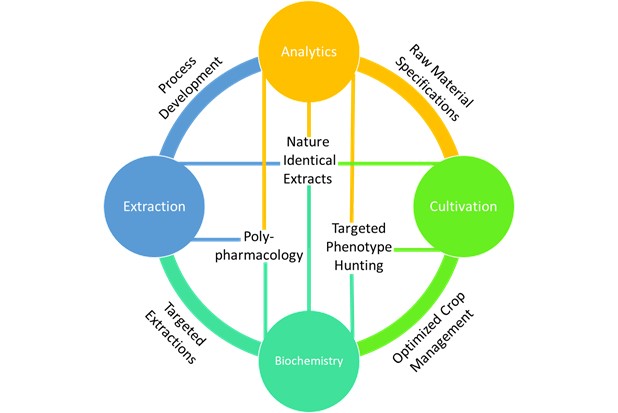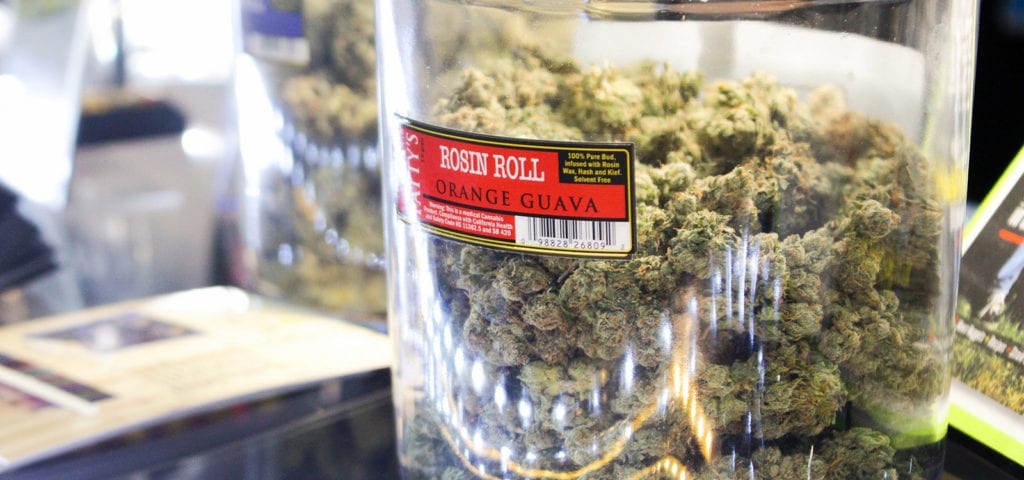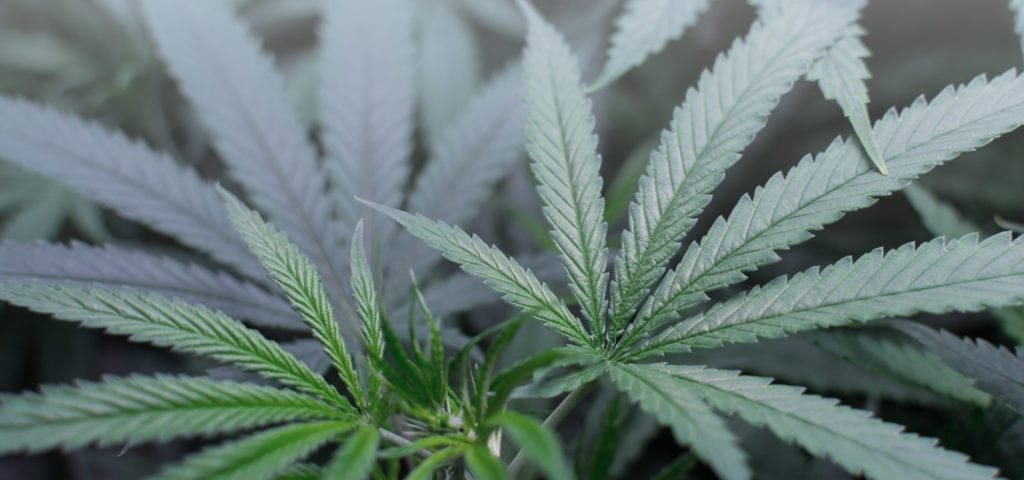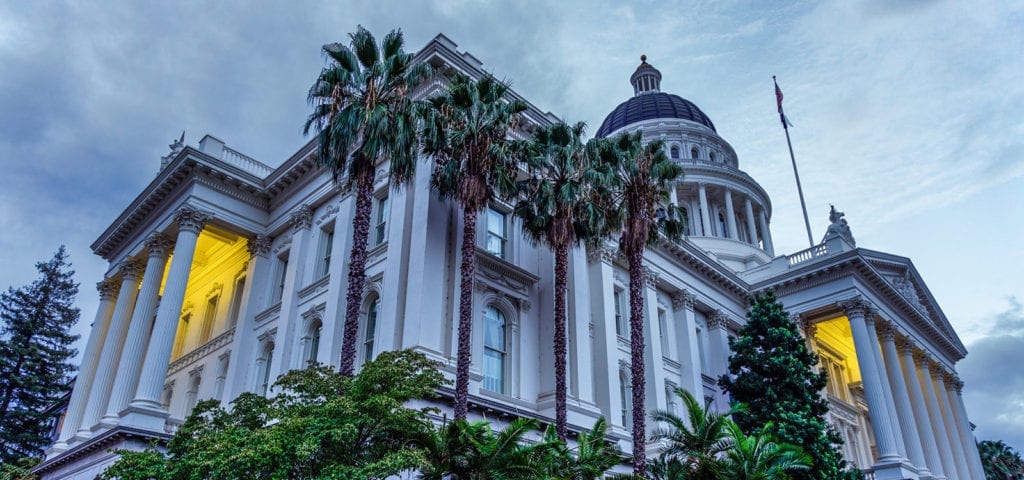Beth Stavola is a serial cannabis industry entrepreneur who owns dispensaries in Arizona and Nevada; she is also the founder and CEO of Stavola Medical Marijuana Holdings and CBD For Life, and is a member of the New Jersey Cannabis Industry Association‘s Board of Trustees.
Beth recently joined our podcast host TG Branfalt to talk about her experience six years ago transitioning from a career in the upper echelons of Wall Street to the “wild west” of the burgeoning cannabis industry. They discuss the differences among state markets, how to work with politicians who still need to learn the benefits of legalization (and the countless drawbacks of prohibition), the ongoing reform progress in Beth’s home state of New Jersey, how she balances the workload of being a mother with six children and multi-state cannabis entrepreneur, and more.
Listen to the interview via the player below, or scroll down for a full transcript of this week’s Ganjapreneur.com podcast episode!
Listen to the podcast:
Read the transcript:
TG Branfalt: Hey there. I’m your host, TG Branfalt, and you’re listening to the Ganjapreneur.com podcast where we try to bring you actionable information and normalize cannabis through the stories of ganjapreneurs, activists, and industry stakeholders. Today I’m joined by Beth Stavola, a cannabis industry entrepreneur who wears a lot of hats, is an owner of multiple dispensaries throughout the U.S., COO and Director of MPX Bioceutical Corporation and a member of the Board of Trustees of the New Jersey Cannabis Industry Association in addition to being a mother of six children. Pretty crazy. How you doing, Beth?
Beth Stavola: I’m doing good, Tim. How are you?
TG Branfalt: I’m all right. Waiting for the thaw here in Vermont, but we’ll get there. Man, I’m having trouble right now.
Beth Stavola: That’s okay. We’re about to get a lot of snow here in New Jersey, too.
TG Branfalt: Let’s hope that we all survive until March, April. Who knows what’s going on. Anyway, I want to talk about you, I want to get to know you, I want to get a bit about your background. How’d you end up in this cannabis space?
Beth Stavola: Well, my background is on Wall Street. I worked, for most of my career, at Jefferies and Company in Institutional Equity Sales. Mostly selling IPOs and secondaries. After children number four and five, twins, I went back to work for about six months. My husband said, “This 7:00 a.m. meeting is probably not working in Manhattan anymore for you.” I started just really doing one-off investments for my family. A deal broker brought me an opportunity to invest $1 million in medical marijuana in Arizona.
I found that it was intriguing and, Tim, better lucky than smart. I’m not going to tell you that I was some incredible visionary. I flew out to Arizona, I came back, and I told my husband I was going to invest $1 million in medical marijuana. He said, “You’ve completely lost your …” Can I say it?
TG Branfalt: Yeah.
Beth Stavola: “You’ve completely lost your shit now.” I bought my first license and it was a pretty crazy story. The first license was on the border of Mexico in Douglas, Arizona. I really planned on investing mostly and not really operating the business. Six and a half years ago, it was the wild, wild west a lot more than it really is now. I ended up having to take over and operate the business. Then I started really enjoying it. I bought two other licenses in Mesa, Arizona. I got super passionate about it. I saw what it was doing to help people and that’s my story.
I remember laying in a bed in a Holiday Inn, staring at the ceiling, and waiting for the Department of Health Services to come down to Douglas, Arizona and give me my first Approval to Operate. I remember just staring at the ceiling all night and saying, “What the hell are you doing?” It’s all worked out. It’s a really exciting business. It’s incredibly challenging with, obviously, the federal illegality. Hopefully, things will be changing there.
TG Branfalt: Can you tell me what the biggest challenge was going from Wall Street to this industry? That’s a night and day sort of jump.
Beth Stavola: You know what? It’s unchartered territory. Because it was in the black market for so long, there’s no playbook and there still is no playbook. When you’re a multi-state operator, like we are, the states change the rules all the time. Sometimes I have to back up and I say, “Okay, which state are talking about now? Is it Maryland, or Arizona, or Massachusetts, or New Jersey?” That’s certainly a challenge.
TG Branfalt: When you were developing the businesses, how’d you end up being so successful? What do you think that you did differently than other people were doing that allowed you to expand and allowed you to get into multiple states?
Beth Stavola: Well, definitely a lot of perseverance. Throwing a lot of stuff against the wall to see what sticks. Learning from my mistakes and the mistakes in this industry are very, very expensive, especially on the cultivation side. Just really taking every meeting. My sister, Julie, works with me amongst a bunch of other fabulous ladies in my office. She would almost make fun of me a little for taking every meeting, but one out of 10 meetings, generally, is going to result in something really great. I really try to leave no stone unturned.
TG Branfalt: You mention your sister. How do you find the right talent? You’re a COO and Director. How do you find the right talent for this space, especially you admittedly didn’t have that experience coming in? Also, what non-cannabis sectors are you finding talent?
Beth Stavola: That’s an interesting question and I talk about it a lot with my counterparts that are multi-state operators. One thing that I joke about is I say it’s like dog years. If you’re in the business six and a half years, it’s like 55 years in any other business. I also joke that I love that sometimes they use five-year-old glamor shots of me because I feel like I’ve aged a lot in the business. It’s really a challenge because the experiences that we’ve had to deal with, whether it’s figuring out what to do with the cash and how to deal with the lack of banking, having your own bank accounts shut down. At a multi-national bank one of my daughter’s communion money accounts shut down because I’m the trustee.
TG Branfalt: Oh, no.
Beth Stavola: Yeah. The banking is one of the most challenging things and that’s one of the things that I really feel like, as a federal government, as one of the things that we have to change quickly, because it really puts people in danger. I sleep with a phone in my bed, certainly, because I have teenagers, right? Also, because I get text messages at night. I know that the stores are closed, all my people have been walked by security to their vehicles, everything has been secured, and that’s really important to me. We’re one of the lucky ones that generally has banking across the board, but it’s a real challenge for the industry.
TG Branfalt: Where are you finding your people? Where are you finding the upper echelon of your executive team and the people who are on the ground in your dispensaries?
Beth Stavola: Former Wall Street, somewhat on the executive team. I feel like if you could survive there, especially during the time period where I was there, you could pretty much wade through anything. My sister, her name is Julie Winters, she was in operations for credit derivative swaps at Barclays. Finding people that come from very highly regulated businesses, gaming, things of that nature.
TG Branfalt: You mentioned the high regulation. How do you decide which markets to enter? Are there specific things that you look for with regard to the states?
Beth Stavola: Yes. We will never be in an unlimited licensing state. You’ll never see us make an acquisition or try to move into, say, a Colorado, an Oregon, a Washington state. Limited licensing states, highly regulated. If it’s a medical state, chronic pain being on the list. It’s generally about 70% of what the medical cards are written. It really depends on how well the state has written the rules. One of the states we’re opening in the next 60 days is Maryland. I’ve been really impressed with Maryland’s program.
TG Branfalt: When it comes to Maryland, I know that there’s a lot going on in terms of the rules being challenged by some minority lawmakers with the social equity rules. Is that something that’s still going on and something that you’re having to deal with?
Beth Stavola: You know what? It is still going on and, frankly, it should be going on, because I’m very, very behind this social justice reform. We cannot be giving these licenses out to only rich, white males when we have men and women of color that are sitting in jail for doing the same exact thing that these licenses are being given out for now.
TG Branfalt: Of the states that you’re operating in, is one more challenging than the other? Do you have a little more trouble in one state versus another? I’m just trying to get a sense of, for multi-state operators, what they might have to deal with if they choose to take that route.
Beth Stavola: Sure. One of the things that I did with the NJCIA is I think the state of Nevada did it right. Now, that said, it is the highest regulated state that we operate in at this very moment. Nevada knows how to do it right, right? They’ve bene regulating highly regulated businesses for years. One of the suggestions that I had for the NJCIA was, you know what? Our new Governor, Phil Murphy, yay Phil, he wants to do so much for this state and changing the medical program here in New Jersey is first and foremost a way that we will head to adult use here, but there’s no state that has switched to adult use better than the state of Nevada.
Senator Tick Segerblom, I’m going to pat him on the back for that. He has done an incredible job pushing that agenda forward there. He and I were able to, along with Dara Servis and Hugh O’Beirne, with the NJCIA, really put together a nice program for state and local officials of New Jersey, to go and see how Nevada did it. They had a really well thought out medical program and, if you think about it, in November of 2016, Massachusetts and Nevada both voted in adult use marijuana. By July 1st of 2017, Nevada had it implemented. That’s an absolute record.
Massachusetts, we’re still waiting for the recreational licenses and we’re looking at about July of 2018. I really wanted some of these lawmakers in New Jersey, as it’s my home state, to see a state that I believe does it right. What we do is we operate all the states to the highest standard of the most regulated state that we operate in, which would be Nevada.
TG Branfalt: I want to talk to you a lot more about New Jersey. I’m on the east coast. I’ve covered New York a whole lot and they’re sort of intertwined; but before we do that, we’ve got to take a break. This is Ganjapreneur.com podcast and TG Branfalt.
If you are looking for a job in the rapidly growing and highly competitive cannabis industry, Ganjapreneur.com is the place to look. Visit the Ganjapreneur Job Board today to browse current openings with cannabis companies throughout the United States. From entry level bud tenders positions to executive level career opportunities. You can also create a profile and upload your resume to be discovered by cannabis recruiters. Visit our Job Board at jobs.Ganjapreneur.com to create your profile today.
If you are a business owner, you can post your job openings for as little as $25 on our Job Board to reach the largest and most engaged audience of cannabis professionals on the web. Companies who are listed in the Ganjapreneur Business Director are eligible for free job listings. If you’re already signed up, contact us today via the website or send us an email at grow@Ganjapreneur.com to activate your unique coupon.
TG Branfalt: Hey, welcome back to the Ganjapreneur.com Podcast. I’m your host, TG Branfalt, here with Beth Stavola, cannabis industry entrepreneur, COO and Director MPX Bioceutical Corporation, member of the Board of Trustees of the New Jersey Cannabis Industry Association. That’s what I want to talk to you about. I want to talk to you about Jersey. You had said before that the first order of business was to strengthen New Jersey’s medical cannabis program. What is happening in New Jersey? You mentioned that Murphy, he’s a proponent of recreational cannabis, there’s bills that have been introduced. What is going on in New Jersey?
Beth Stavola: Right now, Governor Murphy, last week, in his budget speech, he basically is assuming approximately $80 million on revenue coming into the state in 2019, so we really have to get it going. Right now, I believe there’s about $2 million in current medical program; which is, what I will call, an abysmal program which was under Governor Chris Christie who-
TG Branfalt: Boo.
Beth Stavola: Yeah, he inherited it, and didn’t want it, and made it extremely difficult for the current six operators. There’s a lot of politicking going on in New Jersey right now. As you might imagine, the current six operators have suffered through a very difficult program. I have tremendous respect for them, but what we have to do is we have to increase the program. Six operators cannot handle a medical program and, certainly, not an adult use program in the state of New Jersey.
My personal thought is that there should be 100 dispensaries, 25 cultivations, and 25 production facilities. That goes with experience. That is what I’ve seen work and not work for both the patients and for the businesses. We have to have it be healthy for the businesses, but we can’t have it be monopolistic either, right? There’s certainly some politicking going on and quite a bit of pushback from the current operators. We’ll certainly figure that out as we go along.
I was just at a meeting today with regard to this and there were some state and local officials that were able to go on this trip that the NJCIA, we had all put together, to go to Nevada and actually listen to the Nevada politicians talk about how they did it and I believe that they did it right. Then this morning, we had a meeting in New Brunswick for any state and local politicians that could not end up taking that trip. Just to go over all of the issues and allow for them to ask industry experts questions. It was actually a really great meeting.
TG Branfalt: What sort of questions are lawmakers in New Jersey asking? We have reports from Colorado, we have reports from legal states, so what else can they be curious about at this point?
Beth Stavola: Well, one of the questions could be, “What do I tell my constituents when they say marijuana is a gateway drug?” My answer to that is I’ll tell you the flip side. I think marijuana is an exit drug and it’s an exit drug for a lot of people. We have an opioid crisis in this country. It’s an epidemic. We consume, as Americans, 85% of the opioids in the world. Yeah, unbelievable. It’s a major, major problem. I watch people get off of opioids and they’re smoking a vape pen.
Do you know the satisfaction that it gives you to watch a veteran who’s been just handed pill, after pill, after pill, prescription, after prescription from the VA, and have them just smoking a vape pen that’s not going to hurt them? I call it an exit drug and I think that really helps some of these local politicians to be able to go and talk to their constituents about it. All on my executive team, we’ve suggested, bring us to your local meetings. I’m a mom of six kids. I want to protect the kids, I want to make sure that we have childproof packaging, we’re not making things that are attractive to children. There’s a lot of things that go into it and I think it’s new territory. The politicians are really learning it as they go hand-in-hand with us.
TG Branfalt: In your opinion, what do you think legalization in New Jersey would mean for other east coast states, especially New York? You have Governor Andrew Cuomo of New York who has no interest in legalizing recreational cannabis use, but it’s hard for a lot of New Yorkers, people who are plugged in, to say that Cuomo’s going to let New Jersey reap all of the rewards from that industry. In your opinion, you operate in a variety of states, you live in New Jersey, which is very close to legalization, what does it mean for the east coast states if Jersey goes green?
Beth Stavola: Well, you know what? I think it’s really going to force Cuomo to go green, frankly, and I have heard some interviews that he is actually softening up to that. I think that the proof will be in the pudding when you’re actually seeing … I heard a statistic today that Colorado, which is, from a population standpoint, I think 3 million less residents than New Jersey, took $45 million worth of marijuana money and put it into the school system. New Jersey is so desperate for tax money and I’ve heard this joke, and it’s kind of scary, but people say, “Last one out of New Jersey, shut the lights out.” I know. It’s my hometown and it’s been so frustrating for me to see these marijuana programs that are very successful in these other states and see people helped, and come home, and see the same exact diseases, and not be able to help people here.
TG Branfalt: What exactly is holding the reforms back? You have a governor who is supportive of this. That’s not enough to push these lawmakers into supporting common sense recreational cannabis legislation?
Beth Stavola: Politics, politics, politics. There was, I will call him, an agitator, Assemblyman Joe Danielsen, who was at the meeting that I was at this morning and introduced himself as a firefighter. He was fighting back on the social reform piece as a wonderful, wonderful man, Leo Bridgewater, was speaking. Who was a decorated war vet with PTSD, who he’s just wonderful and a member of the NJCIA. Pushing back and it seemed like there was an agenda there. It could’ve been, in my opinion, to protect the six current operators and not allow for additional operators to come in.
TG Branfalt: It’s stunning to me, it really is. I want to talk to you about being a mother of six in this industry. Before we do that, we’ve got to take a break. This is the Ganjapreneur.com Podcast. I’m TG Branfalt.
At Ganjapreneur, we have heard from dozens of cannabis business owners who have encountered the issue of cannabias, which is when a mainstream business, whether a landlord, bank, or some other provider of vital business services refuses to do business with them simply because of their association with cannabis. We have even heard stories of businesses being unable to provide health and life insurance for their employees, because the insurance providers were too afraid to work with them.
We believe that this fear is totally unreasonable and that cannabis business owners deserve access to the same service and resources that other businesses are afforded, that they should be able to hire consultation to help them follow the letter of the law in their business endeavors, and that they should be able to provide employee benefits without needing to compromise on the quality of coverage they can offer. This is why we created the Ganjapreneur.com Business Service Director, a resource for cannabis professionals to find and connect with service providers who are cannabis friendly and who are actively seeking cannabis industry clients.
If you are considering hiring a business consultant, lawyer, accountant, web designer or any other ancillary service for your business, go to Ganjapreneur.com/Businesses to browse hundreds of agencies, firms, and organizations who support cannabis legalization and who want to help you grow your business. With so many options to choose from in each service category, you will be able to browse company profiles and do research on multiple companies in advance so you can find the providers who’s the best fit for your particular need.
Our Business Service Director is intended to be a useful and well maintained resource, which is why we individually vet each listing that is submitted. If you are a business service provider who wants to work with cannabis clients, you may be a good fit for our Service Directory. Go to Ganjapreneur.com/Businesses to create your profile and start connecting with cannabis entrepreneurs today.
TG Branfalt: Hey, welcome back to the Ganjapreneur.com Podcast. I’m your host, TG Branfalt, here with Beth Stavola. She’s the COO and Director of MPX Bioceutical Corporation and a member of the Board of Trustee of the New Jersey Cannabis Industry Association. She’s also a member of six, which is something I want to talk to you about. What is the reaction when … I don’t have any children. I tell people I work in the cannabis space and they’re like, “Oh, that’s cool.” What the reaction when you tell other parents what you do?
Beth Stavola: Six years ago, I didn’t. It was not popular, it was not cool, I was telling … Why are you flying to Arizona so much? Why are you flying to Nevada? I was buying commercial real estate. It was not a lie, I was buying commercial real estate, but I was also operating a medical marijuana business. I was concerned that other parents would do things like not let their children play with my children because, “You can’t play with Elle Stavola because her mom’s the pot mom.” Now, it’s very, very different. It’s like I get texts from all the kid’s parents. Like, “Happy 420…” It’s very different now, but what a difference six years makes. It’s still federally illegal and I’m not seeing a huge amount of movement in Congress. I’m hoping that’s going to change. I think that the kid’s parents are extremely supportive.
TG Branfalt: Can I ask? What the process was with your own children? I’m sure they know what you do, so do you mind telling me what that was like?
Beth Stavola: Whoa, that was interesting to say the least. My oldest two are 21 and 18 now. They were young teens and I walked them through the process. I actually took them out there. I explained to them what I was doing and it was kind of like a pharmacy. We were helping people that couldn’t be helped with other things, that didn’t want to take pills, that wanted to treat themselves naturally. Explaining to them that no one has ever died in the history of the world of a marijuana overdose, but people die of opioid overdoses all the time.
Their cousin died five years ago, my nephew, God rest his soul, of a heroin overdose. That was very painful for our family. The statistics speak for themselves, Tim. With a good medical program, you immediately see a reduction in opioid deaths of approximately 30%. I don’t know how anybody argues with these numbers. “The numbers don’t lie,” I say all the time.
TG Branfalt: How do you react to this fear mongering about legalization and the alleged negative effects it has on youth? A lot of parents with six children aren’t really as enlightened as you. I’m not trying to disparage anybody, but people who say, “Well, I have children, so we can’t legalize cannabis.” Right?
Beth Stavola: Well, it’s funny. There’s a lot of people that are reaching out to us in New Jersey that are saying, “Oh, we want to try to operate in New Jersey.” My husband’s best friend said to me that he’s had people come up to him and say, “I can’t believe what Beth Stavola’s doing. She’s really pushing this in our state and she should be ashamed of herself as a mother of six kids.” It runs the whole spectrum of people wanting to have me help them in the industry to telling me that I’m selling the Devil’s lettuce.
I think it’s really all about education and I think this fear mongering is because people just don’t know. They don’t know the statistics, they call it a gateway drug all the time, it is not. Talk to any teenage child right now. It is so much easier to get marijuana than it is to get alcohol. MPP slogan, it’s regulated adult use marijuana like alcohol. Tax it, regulate it, 21 and over.
TG Branfalt: You’re obviously very passionate, you’re very successful. I applaud your activism. You’re an activist on a daily level. You have to be, given the position that you’re in as a mother of a large family. What advice do you have for other entrepreneurs looking to either enter this space or those entrepreneurs who may want to get into the space in some capacity, but are worried about the effect that it could have on their family?
Beth Stavola: First off, the effect on your family is if you educate your family, they will get it. I know my parents had a really difficult time. I come from an extremely conservative background and, now, I have my mom running around her country club like, “Guess what Beth and Julie do.” Yeah. Like sending me articles about us. She’s so proud. She wants to be interviewed by you. Advice for entrepreneurs: check your ego at the door, don’t ask any of your employees to do anything that you wouldn’t do, share the wealth, there’s plenty to go around, and that’s important to me.
When I did the public deal, the most important thing to me was that every single one of my employees became an owner of this company. Each year they get stock options and, I have to say, everybody treats this company as an owner. Every cultivator, every janitor, every bud tender. You know what? I’ve given away a lot of my own money and my own stock. I would just say there’s a lot to go around, and pay it forward, and take care of the people that actually make the business successful. Greed is a very bad thing.
TG Branfalt: It’s a really incredible story. I really, really appreciate you taking the time, especially some of the personal stuff. Again, I don’t have any children, I don’t have that experience. Both of my parents used cannabis my entire childhood. I grew up it was fine, it was totally cool.
Beth Stavola: I love it.
TG Branfalt: Where can people find out more about you? Where can they find out more about your dispensaries, about MPX Bioceutical? Tell me where we’re going.
Beth Stavola: Yeah. [inaudible 00:33:12]. MPX Bioceutical.com. You could go on our website. We are traded on both OTC and the Canadian Stock Exchange. OTC is MPX, like Mary, Paul, Xavier, EF, like Elizabeth Frank. MPXEF. Then on the Canadian Stock Exchange it’s MPX.CN.
TG Branfalt: Again, I want to thank you for taking the time to come on the show. I know that you’re super busy. I really look forward to seeing just how you develop, how the company develops, and where you go from here. It’s a really, really incredible story and I thank you for sharing it.
Beth Stavola: Thank you so much. If anybody wants to follow us on Instagram, it’s @MPX_AZ. We have a lot of cool pictures and information-
TG Branfalt: I’ll check that out as well.
Beth Stavola: … On there.
TG Branfalt: You can find more episodes of the Ganjapreneur.com Podcast in the podcast section of the Ganjapreneur.com and in the Apple iTunes store. On the Ganjapreneur.com website, you will find the latest cannabis news and cannabis jobs updated daily along with transcripts of this podcast. You can also download the Ganjapreneur.com app in iTunes and Google Play. This episode was engineered by TRIM Media House. I’ve been your host, TG Branfalt.

